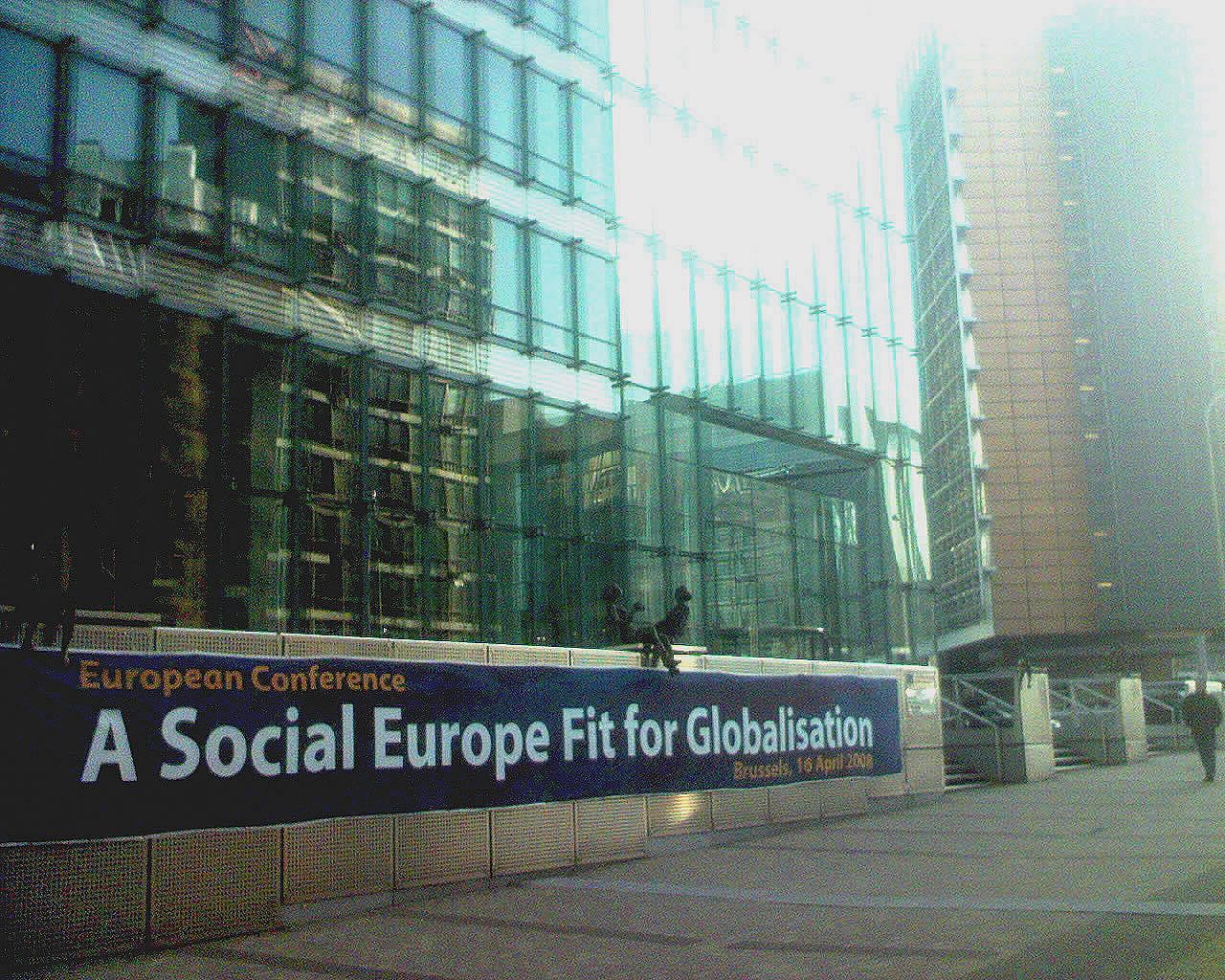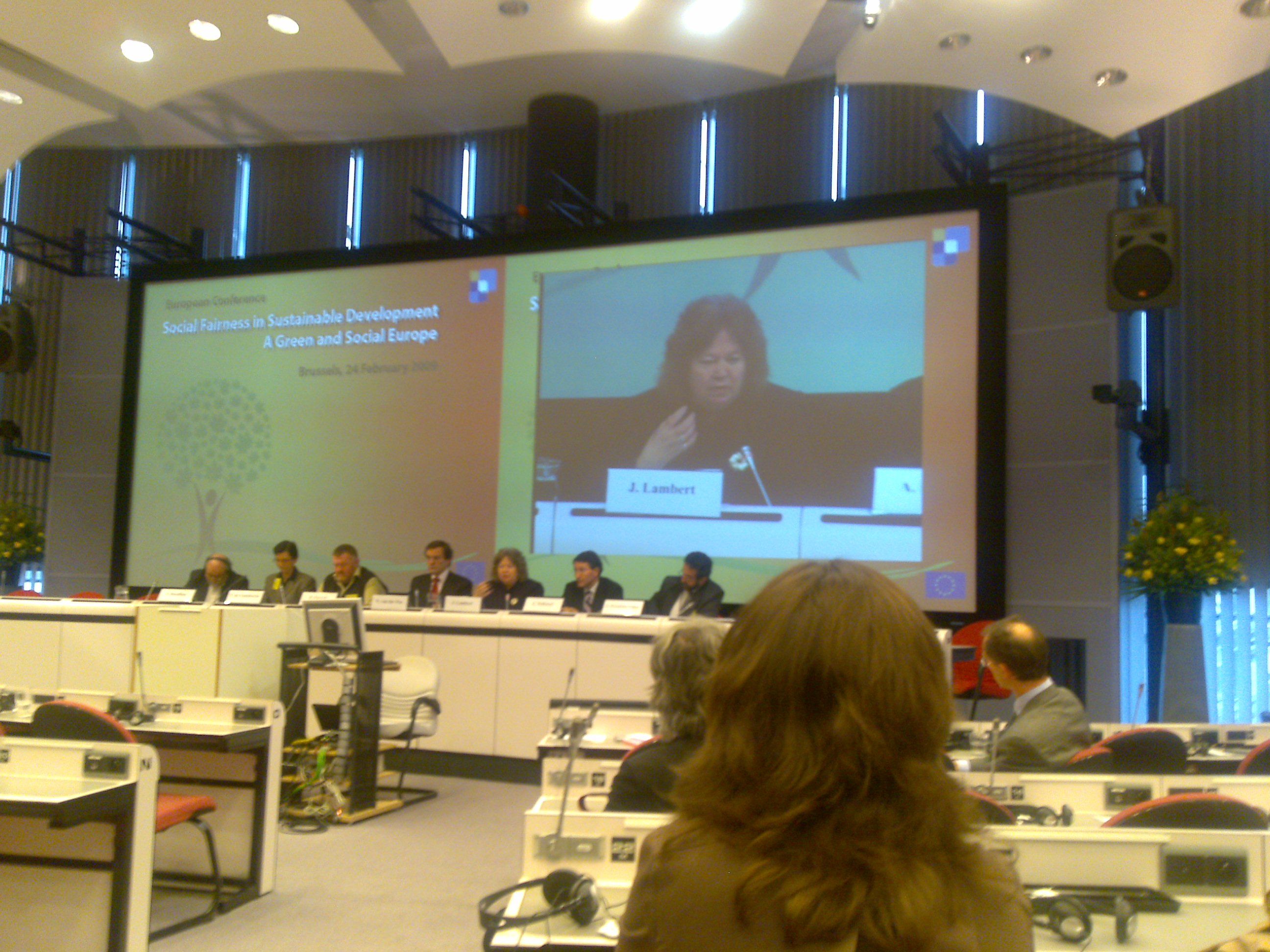| HOW FAR SHOULD WE PUSH GLOBALIZATION? (4 November 2016, Paul de Grauwe)
The discussions about CETA, the Comprehensive Economic and Trade Agreement between Canada and the European Union, have focused almost exclusively on two questions. They are important but certainly not the most fundamental ones. In this article I first discuss these two questions and then turn to the more fundamental question of how far we should push globalisation.
The first question at the centre of the debate around CETA concerns the way national regulations on environment, safety and health are made consistent with each other. To make trade possible in a world where trading partners have different rules about the environment, health and safety, a procedure must be followed to make these rules mutually acceptable. When, for example, two countries wish to trade in poultry, they must agree on what constitutes a healthy chicken. The attitude of many opponents of CETA in Europe is that European regulation is superior to the Canadian (or American in the context of TTIP), and that as a result Canadian and American chicken are suspect, if not poisonous. The implicit hypothesis of this attitude is that European governments care more about the health and safety of their citizens than the Canadian and American governments do about their citizens.
Such an attitude makes trade agreements very difficult. Moreover, it is not based on facts. There is no reason to assume that European legislation of health, safety and the environment is superior to the North American one. If that were the case, the European regulators would long ago have curbed the harmful emissions of rigged European-made diesel cars. They did not, the US authorities did.
The second question at the forefront of the CETA negotiations had to do with the legal procedures to resolve disputes between foreign investors and national authorities. The CETA trade agreement, like many others, provides that foreign investors who feel harmed by new environmental, health, and safety regulations can turn to a special arbitration procedure. This is indeed a problem. It would be better to accept the jurisdiction of national courts in these matters, rather than to allow international investors to turn to special arbitration courts. The feeling in many countries that this is unacceptable discrimination mostly favouring multinational corporations should be respected. While it is preferable to rely on national courts to settle disputes, I have the impression that the opponents of CETA (and TTIP) have blown this problem out of proportion, even arguing that the ratification of these trade agreements would undermine the foundations of our democracy.
A more fundamental question that has not been sufficiently addressed in the discussions around CETA is: How far we should push globalisation?
In my academic career I have always been an advocate of free trade. Free trade provided the basis of the phenomenal material prosperity we have achieved in Europe in the post-war period. It has also made it possible for hundreds of millions of people, especially in Asia, to be pulled out of extreme poverty and to live a decent life.
But it now appears that globalisation is reaching its limits. These limits exist for two reasons. Firstly, there is the environmental limit. Globalisation leads to very strong forms of specialisation. There is of course nothing wrong with specialisation as it provides the conditions for creating more material welfare. But specialisation also means that goods are frequently transported around the globe. The lengthening of the value chains that has been made possible by the reduction of trade tariffs means that the same goods can travel back and forth between many countries before they reach the final consumer. All this transporting around the globe creates large environmental costs (e.g. CO2 emissions) that are not internalised in the price of the final product. As a result, the prices of these products are too low and too much of them is produced and consumed. Expressed differently, globalisation has made markets freer but these markets do not function properly, in that they give incentives to produce goods that harm the environment.
When the proponents of CETA (and TTIP) argue that trade agreements will lead to higher GDPs, they are right, but they forget to say that this will be accompanied by rising environmental costs. If we subtract the latter from the former, it is not certain that this leaves something positive.
The second downside to globalisation has to do with the highly unequal distribution of its costs and benefits. Free trade creates winners and losers. As argued earlier, there are many winners from globalisation in the world, the most important being the hundreds of millions who used to live in extreme poverty. There are also many winners in the industrialised countries, e.g. those who work for or are shareholders in exporting companies. But there are also many losers. The losers are the millions of workers, mostly in the industrialised countries, who have lost their jobs or have seen their wages decline. These are also the people that have to be convinced that free trade will ultimately be good for them and their children. Not an easy task. If, however, we fail to convince them, the social consensus that has existed in the industrialised world in favour of free trade and globalisation will deteriorate further.
The most effective way to convince the losers in the industrialised world that globalisation is good for them is to reinforce redistributive policies, i.e. policies that transfer income and wealth from the winners to the losers. But this is more easily said than done. The winners have many ways to influence the political process aiming at preventing this from happening. In fact, since the start of the 1980s when globalisation became intense, most industrialised countries have weakened redistributive policies. They have done this in two ways. First, they have lowered the top tax rates used in personal income tax systems. Second, they have weakened the social security systems by lowering unemployment payments, reducing job security and lowering minimum wages. All this was done in the name of structural reforms and was heavily promoted by the European authorities.
Thus, while globalisation went full speed ahead, industrialised countries reduced the redistributive and protective mechanisms that were set up in the past to help those who were hit by negative market forces. It is no surprise that these reactionary policies created many enemies of globalisation, who are now turning against the policy elites that set these policies in motion.
Let us now return to the question I formulated earlier: How far should we push globalisation? My answer is that as long as we do not keep in check the environmental costs generated by free trade agreements and as long as we do not compensate the losers of globalisation – or worse, continue to punish them for being losers – a moratorium on new free trade agreements should be announced. This is not an argument for a return to protectionism. It is an argument to stop the process of further trade liberalisation until we come to grips with the environmental costs and the harmful redistributive effects of free trade. This implies introducing more effective controls on CO2 emissions, raising the income tax rates of the top income levels and strengthening social security systems in the industrialised countries. |







